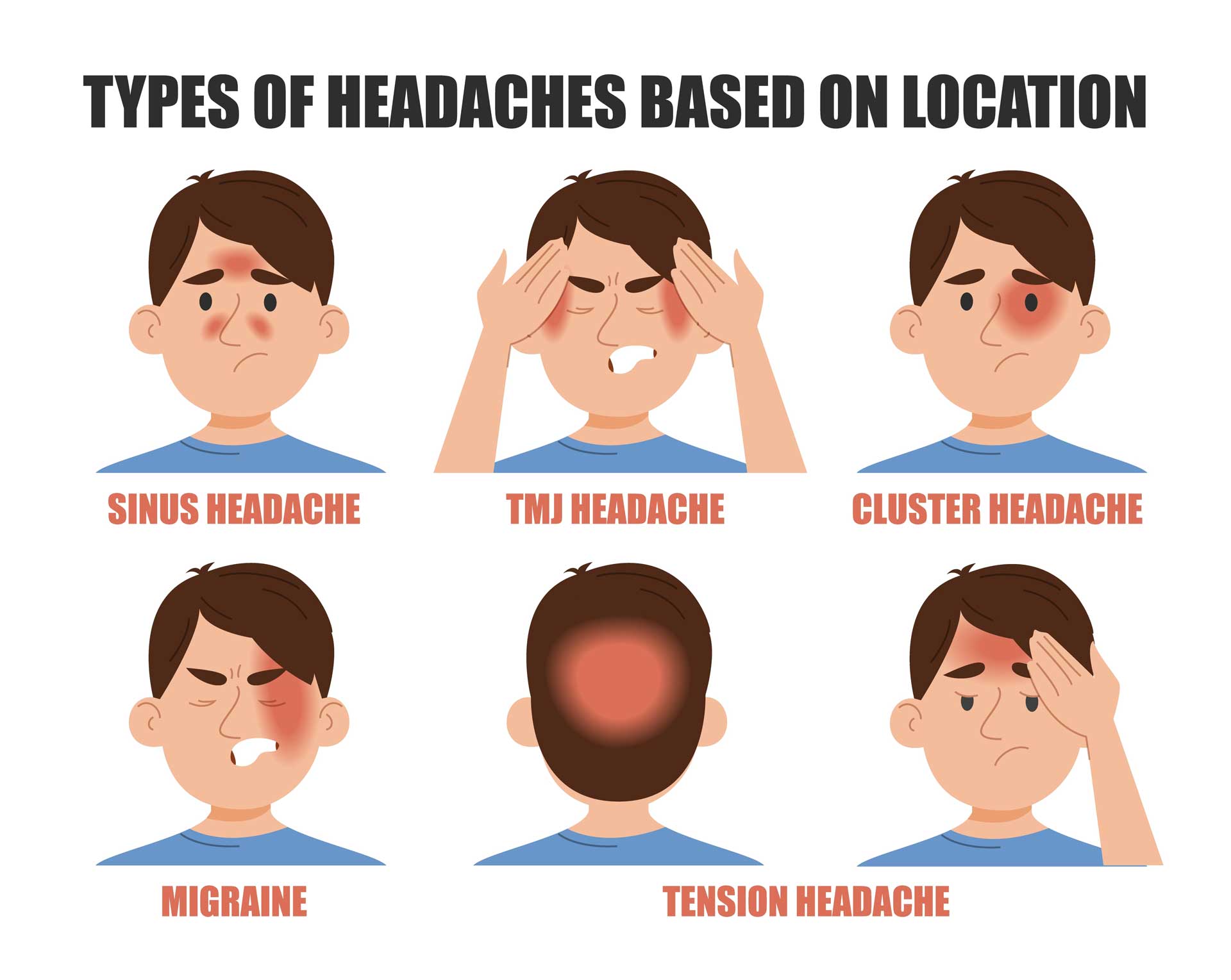What are the symptoms of a sinus infection?
The symptoms of a sinus infection, also known as sinusitis, can vary depending on the severity and whether it is acute or chronic. Common symptoms include:
- Nasal Congestion: A blocked or stuffy nose is a primary symptom, often leading to difficulty breathing through the nose.
- Thick Nasal Discharge: Mucus that is thick, yellow, green, or cloudy is a common sign of a sinus infection. This discharge may drain down the back of the throat (postnasal drip).
- Facial Pain and Pressure: Pain or pressure around the eyes, cheeks, forehead, and nose, often worsening when bending forward, is a hallmark of sinusitis.
- Headache: Sinus infections can cause headaches, often centered around the forehead, eyes, or upper teeth.
- Reduced Sense of Smell and Taste: A diminished ability to smell or taste is common during a sinus infection.
- Cough: A persistent cough, often worsening at night, can occur due to mucus draining down the throat.
- Sore Throat: Postnasal drip can irritate the throat, leading to soreness.
- Fatigue: Feeling unusually tired or fatigued can accompany a sinus infection.
- Fever: A mild fever may occur, particularly with an acute sinus infection.
- Bad Breath (Halitosis): The presence of mucus and bacteria can lead to bad breath.
- Ear Pain or Pressure: Sinus infections can sometimes cause a feeling of fullness, pressure, or mild pain in the ears.
If symptoms persist for more than 10 days, worsen after seeming to improve, or are severe, it’s advisable to consult a healthcare provider. Chronic sinusitis may have milder symptoms but last for more than 12 weeks.
What are the causes of a sinus infection?
Sinus infections, or sinusitis, can be caused by various factors, including:
- Viral Infections: Most sinus infections are caused by viruses, typically those that also cause the common cold. Viral sinusitis often follows a cold and can last for several weeks.
- Bacterial Infections: Bacterial sinus infections may develop if a viral infection leads to a secondary bacterial infection. This can cause more severe symptoms and may require antibiotics.
- Allergies: Allergic reactions can cause inflammation of the nasal passages and sinuses, leading to sinusitis. Common allergens include pollen, dust mites, pet dander, and mold.
- Fungal Infections: Although less common, fungal infections can cause sinusitis, especially in individuals with weakened immune systems (e.g. those with HIV) or those with certain chronic conditions.
- Nasal Polyps: Noncancerous growths in the nasal passages or sinuses can obstruct airflow and drainage, leading to sinus infections.
- Deviated Septum: A deviated nasal septum, which is a displacement of the bone or cartilage dividing the nostrils, can obstruct sinus drainage and lead to infections.
- Respiratory Infections: Conditions like influenza or other respiratory infections can inflame and infect the sinuses.
- Environmental Irritants: Exposure to irritants such as smoke, pollution, and chemical fumes can inflame the sinuses and contribute to infection.
- Chronic Medical Conditions: Certain conditions, such as cystic fibrosis or immune system disorders, can increase the risk of chronic sinus infections.
- Dental Infections: Infections in the upper teeth or gums can spread to the sinuses and cause sinusitis.
Understanding the underlying cause of a sinus infection is important for determining the appropriate treatment and management.
What is the treatment for a sinus infection?
Treatment for a sinus infection, or sinusitis, involves various approaches depending on the infection’s cause and severity. Over-the-counter medications like decongestants and pain relievers can help alleviate nasal congestion and pain. Saline nasal sprays and nasal irrigation with solutions such as those used in a neti pot can assist in clearing mucus and reducing congestion.
For persistent or severe infections, prescription medications might be necessary. Antibiotics are sometimes prescribed if a bacterial infection is suspected, while nasal corticosteroids can help with inflammation. Home remedies also play a role; warm compresses on the face, staying hydrated, and inhaling steam can offer relief.
Managing allergies is crucial if they contribute to sinusitis. Avoiding allergens and using antihistamines may help. In cases where sinusitis is chronic or does not respond to other treatments, medical procedures such as surgery may be considered to address underlying issues or improve drainage.
Additionally, quitting smoking can benefit sinus health. Consulting a healthcare provider is essential for an accurate diagnosis and personalized treatment plan, especially if symptoms are severe or persistent.

Leave a Reply
You must be logged in to post a comment.